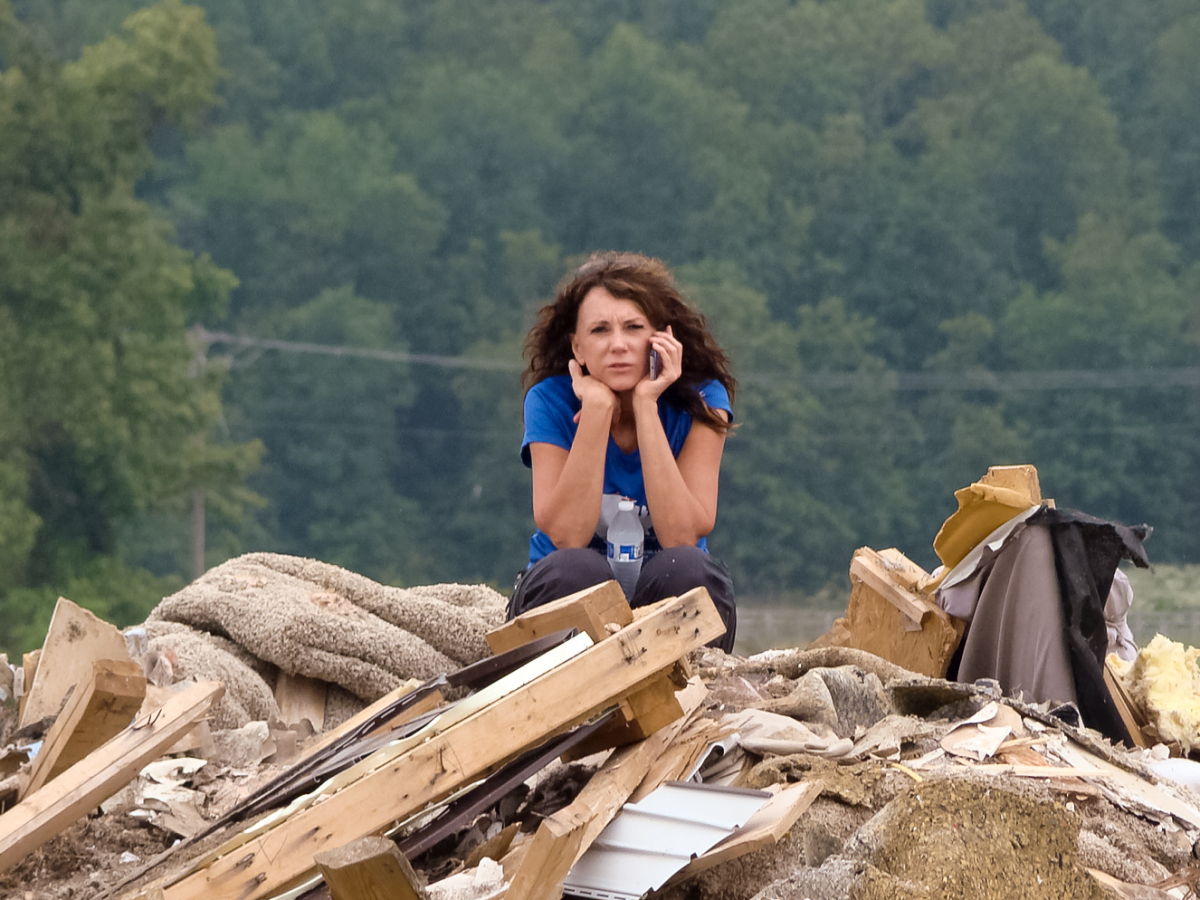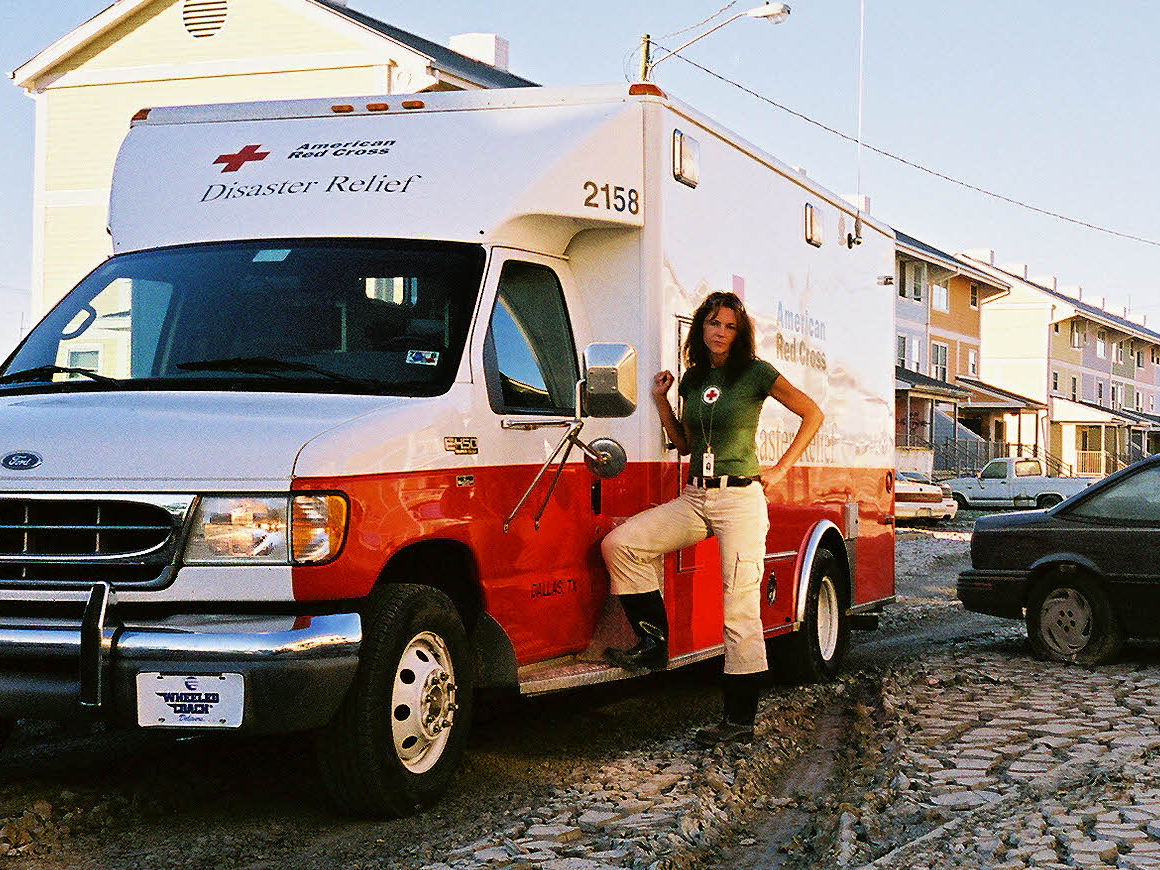The more you know, the more you can do -- Alumna follows her passion to make a difference

Rebecca Thomley didn’t start out with the goal of running a disaster response non-profit, but being open to new paths and having a keen interest in helping people led her there.
Thomley spent the early part of her career as a licensed psychologist, working in private practice and with state government. As a result of some family health concerns, she began to work part time for Meridian Services, the company her mother had founded, ultimately becoming CEO in 2000, a move that changed her life.
By 2005 Meridian Services was part of a suite of for-profit and non-profit organizations under the banner of Orion Associations, with Thomley at the helm as chief executive officer. All of the Orion companies promote service and volunteerism as part of their mission, something Thomley had always embraced, often volunteering with the Red Cross. In 2005 she volunteered in response to Hurricane Katrina and came to New Orleans to lend her skills as a therapist. The scope of the disaster and the overwhelming need for support, however, was greater than what she had ever seen in any other disaster, and she wanted to do more.
Thomley suggested the idea of bringing Orion employees to New Orleans to a colleague, who immediately pointed out that as CEO, Thomley was in a position to make that decision. That realization was transformational for her. “I really felt like I was the caretaker of the organization [but] I wasn’t embracing that role. Katrina changed that for me.”
That realization inspired several key steps. For one, she launched Headwaters Relief Organization, now one of Orion’s 17 related companies, and provided relief, rebuilding, and mental health services in New Orleans’ Ninth Ward neighborhood, which had borne the brunt of the flooding.
“I announced at a management meeting, ‘Hey, anybody who wants to come [to New Orleans], come – we’ll get you there.” At least 35 people came on that first relief trip, and it continued to grow.
As she brought more and more volunteers to the flood-ravaged city to provide the physical help in gutting homes and removing moldy, water-logged furnishings, Thomley realized that she didn’t have the proper knowledge about what they were dealing with. What chemicals were volunteers being exposed to? What safety practices were critical? How could she best protect those who were giving freely of their own time?

That’s when she realized she needed even further education. By this point, Thomley already had three master’s degrees (in psychology, organizational management, and psychopharmacology) and a doctoral degree in clinical psychology. But none of those addressed her concern about the safety of volunteers in a disaster. Enter Tulane.
As an extremely busy professional running a diverse company and a major relief organization, Thomley didn’t have the time to attend a residential program. Tulane, however, has been offering online programs for thirty years, including a disaster management degree. Through the program, Thomley gained the skills she was missing and, equally as important, she connected with professionals who have become trusted advisors and colleagues.
Thomley and her volunteer teams returned to New Orleans every four or five weeks for close to four years, she says, first with mops and buckets, crowbars and shovels, and later by establishing a Mental Health Resource Center. With the development of the resource center, mental health and supporting children following disaster became the focus of the organization.
Headwaters continues to expand nationally and internationally. In 2010, following the earthquake in Haiti, the organization came out with its first book for children, “When Haiti Shakes,” written in English, French, and Creole. Since then, more than a dozen books in response to disasters all over the world have been designed to help children process and understand disaster, while also helping caregivers guidance to engage children to talk about their experiences. Coloring books were developed to address COVID-19, a disaster of another kind impacting communities around the world.
"Life is a teeter totter. I believe in being focused and committed on what I’m engaged in always. The balance is there."
“What we found is that you can reach the entire community with these books,” since, as adults share with the child, they, too, are processing their emotions and reactions to disaster.
Thomley recently returned from Ukraine following the publication of “Together We Stand,” a book and caregiver guide that tells the story of a family experiencing war. This time, the books were written in Ukrainian, Russian, Polish, and Hungarian.
Headwaters has also begun addressing human trafficking, what the organization calls a “hidden aftermath of natural disasters,” and has designed dolls to empower girls in Nepal. The organization has only two full-time staff but manages 2500 volunteers for on projects in multiple countries.
“I learned that we could do more the bigger the organizations grew,” says Thomley. Her passion mirrors the company’s passion. New employees are told up front that there is a commitment to community and for about the past 10 years, close to 100% of employees yearly have volunteered in some capacity with a multiplicity of organizations
How does Thomley balance her work as a CEO while continuing to be hands-on with Headwaters? Well, Thomley doesn’t believe in balance, at least not how it’s presented in the media. “When are you in balance?” she asks. “I think life is a teeter totter. I believe in being focused and committed on what I’m engaged in always. The balance is there.”
She encourages students to follow their passions and to remember that it’s never too late to make a change, something she has certainly proved.
